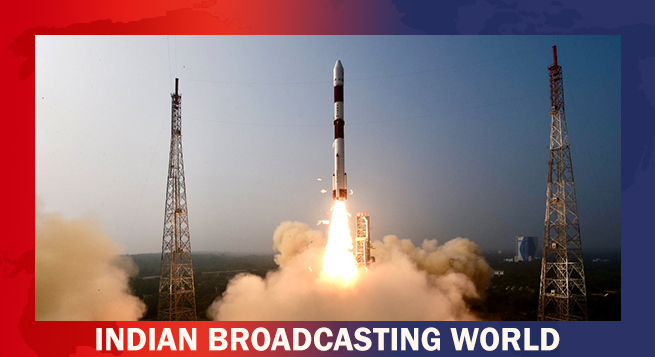Indian space regulator IN-SPACe yesterday unveiled norms, guidelines and procedures for effective implementation of the Indian space policy that opened up the sector to private players to engage in a range of activities from building and launching satellites to setting up ground stations and sharing remote sensing data.
The 147-page document lists out space activities that need authorisation from IN-SPACe, specifies criteria for granting such authorisations and provides necessary guidelines/pre-requisites to be fulfilled by an applicant for making an authorisation application, a PTI report from New Delhi stated.
The norms, guidelines and procedures will complement the government’s endeavour in providing a predictable regulatory regime, transparency and ease of doing business in the Indian space sector.
According to the document, “Only an Indian Entity can apply to IN-SPACe seeking Authorization. Non-Indian entities desiring to conduct space activity in India can apply to IN-SPACe for authorization through an Indian entity, which could be its Indian subsidiary, joint venture or any other collaboration arrangement recognised by the Government of India.
“However, the authorized representative/dealer of non-Indian entities can seek IN-SPACe Authorization for certain category of authorizations such as Authorization of non-Indian GSO and/or NGSO satellite/constellation to enable provisioning of its capacity in India for communication services, Dissemination of space-based earth observation/Remote Sensing data, etc.”
On April 21, 2023, the Indian government released its much-awaited Indian Space Policy 2023.
The policy specifically lays down the role of several government bodies, such as the Indian Space Research Organisation (ISRO) and the Department of Space, apart from specifying the role non-governmental entities — a term for private players in the space sector — will play in India’s space ecosystem, a report in moneycontrol.com added.
 Goafest returns to Goa this year in May
Goafest returns to Goa this year in May  Top India Ministers pitch WAVES ’25 to foreign envoys in New Delhi
Top India Ministers pitch WAVES ’25 to foreign envoys in New Delhi  JioStar secures 20 top brands for TATA IPL 2025
JioStar secures 20 top brands for TATA IPL 2025  Moneycontrol Global Wealth Summit charts India’s $10 trillion market-cap journey
Moneycontrol Global Wealth Summit charts India’s $10 trillion market-cap journey  Zeefluence to revolutionize influencer marketing
Zeefluence to revolutionize influencer marketing  Nitin Gadkari to inaugurate 32nd Convergence India & 10th Smart Cities India Expo
Nitin Gadkari to inaugurate 32nd Convergence India & 10th Smart Cities India Expo  Zarrar Don named Moneycontrol’s Chief Revenue & Business Growth Officer
Zarrar Don named Moneycontrol’s Chief Revenue & Business Growth Officer  Ayushmann Khurrana named ‘Fit India Icon’
Ayushmann Khurrana named ‘Fit India Icon’ 








